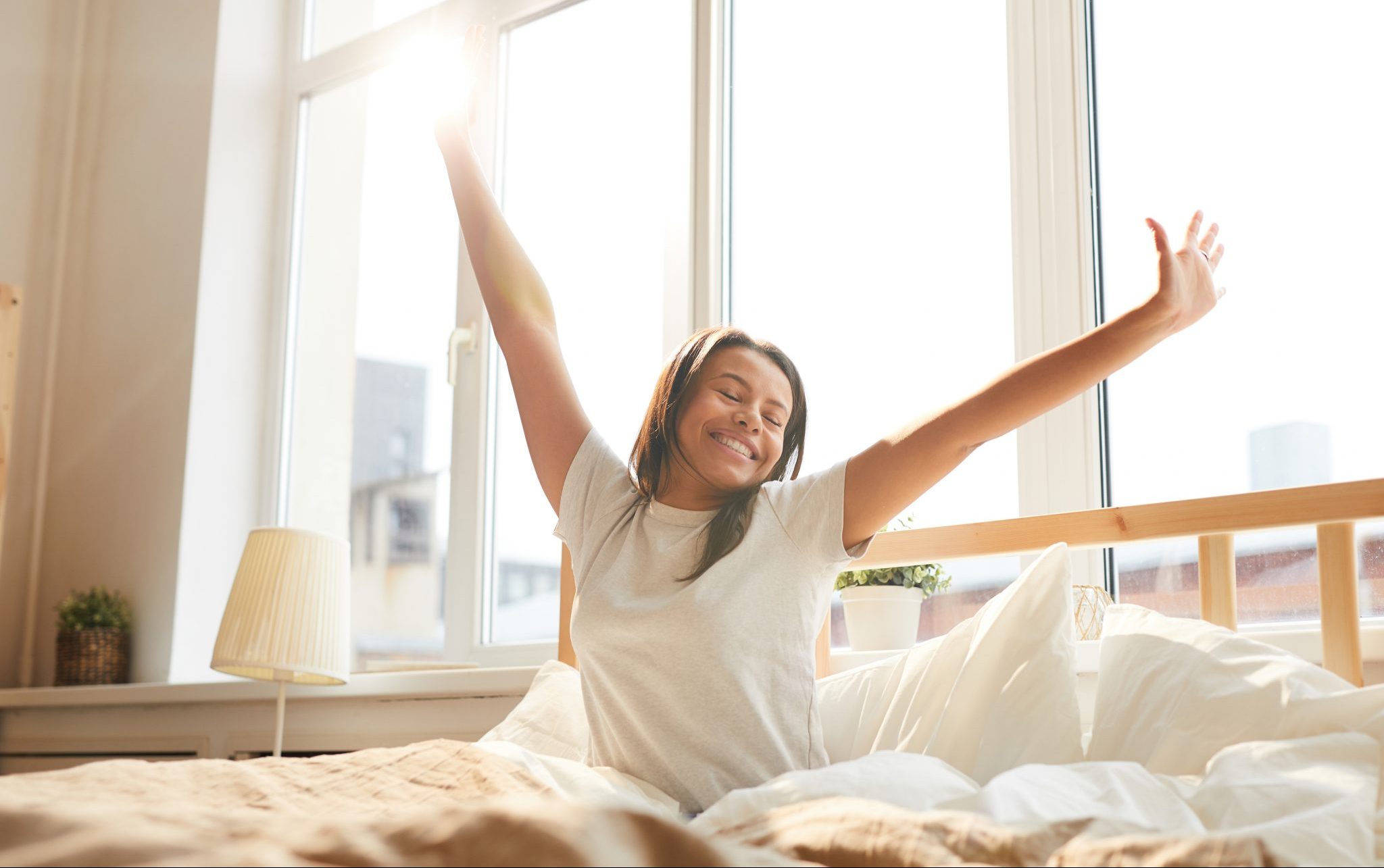During these turbulent times of the coronavirus outbreak, social distancing is what helps prevent the spread of the virus and keeps us and our loved ones safe. Even though social distancing sounds like an introvert's dream, stepping aside from the daily routine and staying home most of the time might be hard. But nonetheless, self-isolation gives you the opportunity to work on the things that are difficult to fix during your normal workdays.
So, turn social distancing to your advantage and use this time to reconsider your daily schedule and check how it affects your well-being and health.
You might have already heard of our body’s internal clock – our circadian rhythms. Now let’s discover how to reset this clock and make it work to your advantage.
What is a circadian rhythm?
A circadian rhythm is the natural internal system that regulates the physical, mental, and behavior changes that occur in the body within a 24-hour cycle.
It happens due to hormonal shifts that make us feel tired or awake. Our energy levels and mood depend on the nature more than we think - these hormonal changes are closely linked to sunlight. Our bodies react to light and darkness – keeping us awake in the light of day and making us sleepy at night.
In today’s world, circadian rhythms get out of sync pretty often. It usually happens because we tend to work irregular shifts, or we’re under a lot of stress, or we fail to spend enough time outdoors, and as a result are being exposed to too much artificial light. The list goes on.
Your circadian rhythms need to be fixed if you:
- Feel tired during the day but full of energy when it’s dark out
- Have difficulty falling asleep at night
- Wake up in the middle of the night
- Are unable to concentrate
- Work odd hours
- Have chronic daily headaches
8 steps to sync your life with your circadian rhythms
Proper focus on your own circadian health improves sleep patterns, boosts mood, prevents diseases, and more. Below are eight steps to help you adapt your schedule to your natural internal clock.
1. Wake up as close to sunrise as possible
In an ideal world, our circadian rhythms should sync up with the sun. So try to let more sunlight into your house in the morning and adjust your schedule to natural daylight.
Sunlight works as a signal for your brain, sending an alert that it’s time to start a new day. Open your windows real wide first thing in the morning to let fresh air and natural light in. It will fill you up with energy.
2. Regulate your meals
The goal is to stick to a day-to-day eating schedule and consume your meals approximately at the same time each day. Try eating your main meals during daylight hours and avoid heavy foods for dinner and before bed.
3. Exercise daily
Your whole body, including muscles, is linked to your internal biological clock. When you work out, your body releases hormones – endorphins and dopamines – that participate in regulating your natural circadian rhythm. Exercising also promotes melatonin production, which helps you to sleep better.
4. Consider taking a short break at midday
Ever felt this afternoon slump? Yeah, that is also a normal part of the body’s circadian rhythms. But don’t rush to trust that signal and take a nap right when you feel that your enthusiasm slowly evaporates and attention starts to fade away. Instead, consider going outside, taking a walk or doing a short stretching session and you’ll notice the increase in energy in no time.
5. Take a short walk right before sunset
Just like the sunrise helps you feel awake, the sunset gives your body a signal that it’s time to wind down and go to bed. You can either spend time on your back porch or take a stroll in the park.
But make sure to avoid walking in crowded places at this moment in time.
6. Limit screen time after sunset
We all know that the blue light that’s emitted from phones, TVs and laptops can disrupt sleep. The screen light from your devices works similar to sunlight and sends message to your brain that you need to stay awake.
7. Optimize your sleep environment
Let your bedroom be free of work and negativity and make it a place associated with rest and relaxation only. Create a cool and cozy environment, reduce noises, use essential oils to surround yourself with scents you like.
8. Go to bed right when you feel sleepy after sunset
Don’t wait until ‘the time is right.’ Forget about the rule of sleeping for 8 hours each night. If it’s already dark out and you feel that you’re ready to fall asleep - just go for it. Let your body adjust to the new rules – light means awake, dark is time for sleep.
Center your attention on circadian rhythms and give yourself some time to experiment with it. Take it slow and watch how your body responds to the external environment and daylight. The process of resetting your internal biological clock is not only about fixing your sleep schedule but it’s also about improving your health, boosting mood and making you feel better.
Listen to your body and stay safe! Good luck with your new routine!







